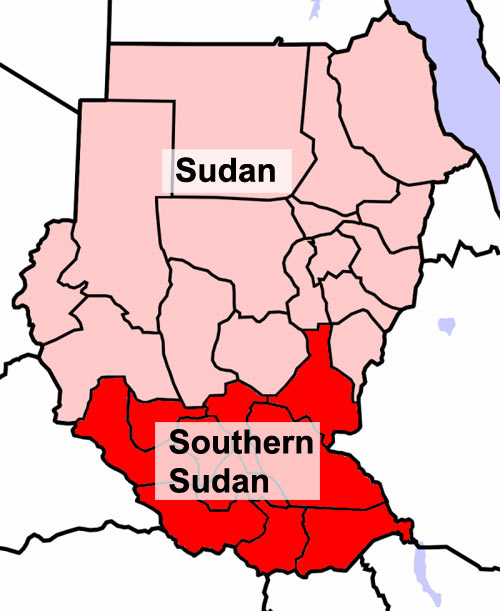In January 2011, the worldobserved with apprehension South Sudan’s relatively peaceful vote to secedefrom the north. This referendum followed a precarious 2005 peace agreement thataimed to end Africa’s longest-running conflict, an appallingly destructive warthat killed and displaced millions of civilians. As the South Sudanese enjoyedubiquitous elation at the news – nearly 99 percent voted for secession – tensionsrose between the Sudanese military and the SPLA, South Sudan’s secessionistforce, along border areas. Sporadic reports of violence, pillaging and burningsurfaced. Now, six months later and mere days before South Sudan officially gainsindependence on July 9, the border disputes threaten to spiral into yetanother civil war.

In the contested regions ofAbyei, South Kordofan State, and the Nuba Mountains, the Sudanese military perpetratesflagrant violations of civilians’ most basic rights, including murder, rape,torture, pillaging and arson of homes, and alleged ethnic cleansing. Alreadywanted by the International Criminal Court (ICC) for the atrocities in Darfur,Sudan President Omar al-Bashir and South Kordofan Governor Ahmed Haroun continue to wield the power of the north's militaryagainst civilians with marked brutality, provoking similarly deadly responses fromthe SPLA.
Compounding the border attacks is internal tribal conflict in theSouth, as SPLA combatants clash with numerous armed groups in several of theSouth’s ten states; between January and April, the states of Jonglei, Lakes,and Unity witnessed the most violence. Accordingto the United Nations, more than 260,000 people are displaced in SouthSudan as a result of the conflicts, and more than 1,800 have been killed sincethe January referendum. Civilians’ rights to life, health, livelihood, property,and protection have been egregiously assaulted.
Amidst the violence, theoutlook for July 9 might be seen with a cautious hope. Last week, the UNauthorized deployment of 4,200 Ethiopian peacekeeping forces to Abyei, a region straddling the border between the two countriesthat has seen intense violence but that warring factions now plan todemilitarize ahead of the South’s independence.
Additionally, in an effort toavoid escalating clashes on South Sudan’s day of celebration, the African Unionmediated a tense agreement between SPLA and Sudanese forces to withdraw fromborder regions prior to July 9. A 12-mile buffer zone will remain between thenations. Despite this potential progress, monitoring and supporting the securitysituation and basic rights of civilians in the South must remain a priority ofthe international community throughout the inauguration of the world’s youngestcountry.
On June 30, AmnestyInternational and Human Rights Watch co-released a list of recommendationsfor South Sudan, to ensure the rights of its people are recognized and grantedas the new nation determines its policies and affirms its stance on humanitarianconsiderations.
Physicians for Human Rightssupports this rights agenda, and encourages the new government of South Sudanto enforce the recommendations in full.
The list prioritizes sixactions for South Sudan:
- Ensure accountability for human rights violations carried out by security forces, and put an end to impunity.
- Promote freedom of expression, association and assembly.
- Release detainees whose imprisonment is unfounded or unjustified, particularly children.
- Immediately place a moratorium on the death penalty.
- Promote and protect the rights of women and girls, including condemning all forms of sexual and gender-based violence, and increasing women’s access to justice.
- Ratify international human rights treaties, including the Convention on the Elimination of All Forms of Discrimination Against Women (CEDAW), the Rome Statute of the International Criminal Court (ICC), and the Convention Against Torture and Other Cruel, Inhuman or Degrading Treatment or Punishment.
By elevating these issues inits constitution, legal code, and early initiatives, South Sudan will send a powerfulmessage to its people – and to the world – that the enforcement of essentialhuman rights is central to the young nation’s politics. National developmentthat builds upon a foundation of human rights will gain the South Sudanesepeople’s trust in their new government, a welcome reprieve for a populationthat has endured a legacy of violence and rights violations at the hands oftheir leaders.
Emily Winter is aPrograms Intern at Physicians for Human Rights.
